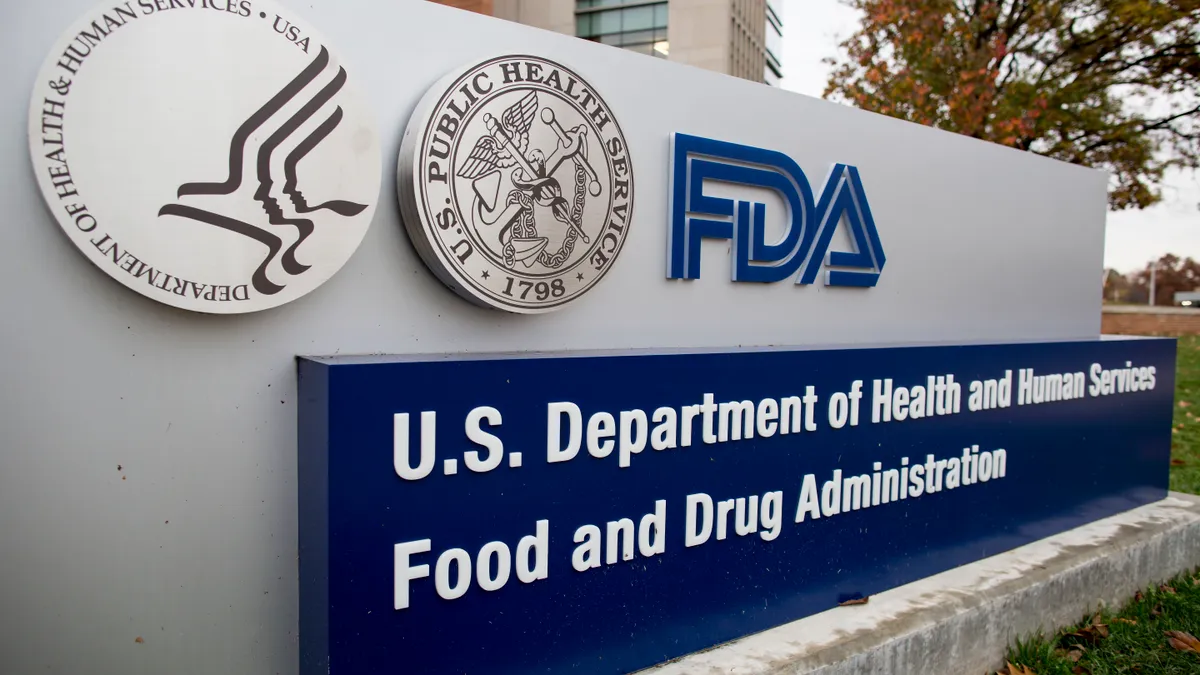Dive Brief:
- Abbott and DiaSorin are among the latest companies to receive emergency use authorizations from the FDA for coronavirus antibody tests. The agency posted new designations for those tests and ones from Ortho Clinical Diagnostics and Autobio Diagnostics over the weekend, adding to prior EUAs awarded to Cellex, Chembio Diagnostic System, Mount Sinai Laboratory, and an earlier test from Ortho Clinical.
- The tests are meant to help identify those who have been infected with the virus and developed an immune response. However, the World Health Organization on Friday warned against the use of SARS-CoV-2 antibody testing to establish “immunity passports” or “risk-free certificates” for individuals on the assumption they are protected against re-infection and can go back to work or travel. "There is currently no evidence that people who have recovered from COVID-19 and have antibodies are protected from a second infection" and "may therefore increase the risks of continued transmission," according to WHO.
- Also on Friday, preliminary findings of a House Oversight and Reform Subcommittee investigation indicated numerous companies are taking advantage of the crisis by marketing fraudulent tests. "White House plans to reopen economy are flawed by their dependence on coronavirus antibody tests, which face unanswered scientific questions of utility and accuracy," the subcommittee memo states.
Dive Insight:
A report last week from Cowen analysts estimated the U.S. market for coronavirus antibody testing could potentially represent a multibillion dollar opportunity for Abbott, Roche and other companies with plans to launch tests.
The newly designated serology tests from major medtechs Abbott and DiaSorin each test for the antibody IgG, a protein produced later in the course of infection. Other serology tests with EUAs also test for the antibody IgM, which may indicate a person's more recent exposure to the virus. Other big companies such as BD have launched similar tests without the designation under the agency's policy unique to the COVID-19 public health emergency.
The agency last month provided regulatory flexibility for antibody tests to provide labs and healthcare providers with "early access" to these products with the proviso that the FDA had not reviewed or authorized them, and that they should not be used for diagnosing or excluding active SARS-CoV-2 infection.
At the same time, the agency has been encouraging developers to submit emergency use authorization requests for their tests. Commissioner Stephen Hahn made the case in an April 18 statement that "an EUA will provide laboratories and providers with assurance that FDA has reviewed that test." At the same time, Hahn warned the need to protect Americans from "tests marketed with false or unsubstantiated claims."
While the FDA's emergency use authorizations for companies' serological tests are the "gold standard" for ensuring the accuracy of the antibody tests, according to comments from Association of Public Health Laboratories CEO Scott Becker during an April 15 media briefing, questions are mounting about the accuracy of testing currently available in the market that have not received FDA's review and EUA designation.
The Trump administration’s coordinator for coronavirus diagnostic testing Brett Giroir warned earlier this month against overreliance on antibody tests before they are fully validated. At the time, Giroir said the FDA is working with CDC and NIH to validate some of the COVID-19 serology tests on the market.
Hahn's statement earlier this month laid out the FDA's "thinking" on serology tests and its approach to making accurate and reliable testing widely available. In particular, he touted the agency's collaboration with NIH to establish the capability to evaluate antibody tests.
"This effort includes tests already available for use, as well as tests not yet on the market where additional validation data is needed to support an EUA," Hahn said. "Performance assessments for serological tests will begin soon, and we expect to start seeing results shortly thereafter."
However, according to the House subcommittee's preliminary findings, the FDA is "unable to validate the accuracy of antibody tests that are already on the market, and companies are ignoring requests from the Department of Health and Human Services to voluntarily submit their tests for validation."
The congressional report found FDA and CDC have "not put forth standards and guidelines for serological antibody tests, departing from practices governing molecular tests." In addition, it charged that FDA did not review any coronavirus “rapid” antibody test kits prior to their going on the market and, without enforcement by the regulatory agency, manufacturers have been able to make fraudulent claims about their products.
Making matters worse, the House subcommittee concluded that overall the FDA has "failed to police the coronavirus serological antibody test market, has taken no public enforcement action against any company, and has not conveyed any clear policy on serological tests."
Asked to comment on the report, an FDA spokesperson redirected MedTech Dive to comments Hahn made during Friday’s White House press briefing. "We are very much paying attention to safety and, with respect to tests, validity and reliability," Hahn said during the briefing. "We are working with the National Cancer Institute as well as CDC to perform our own validation of the tests that have been sent to us."













